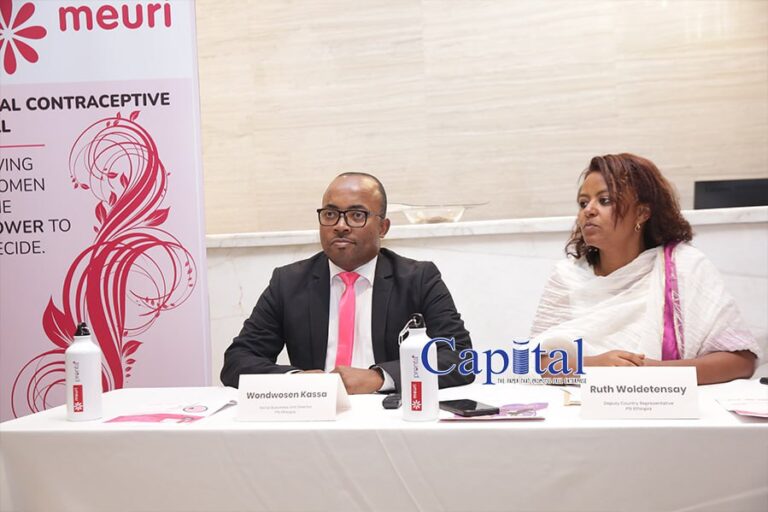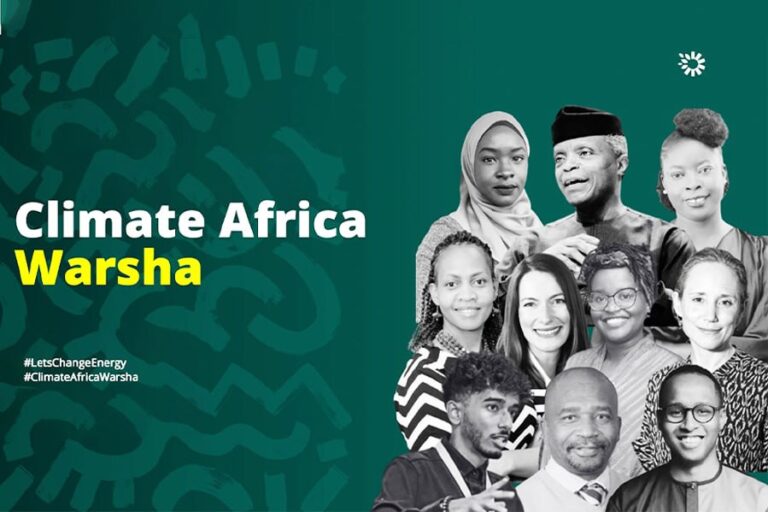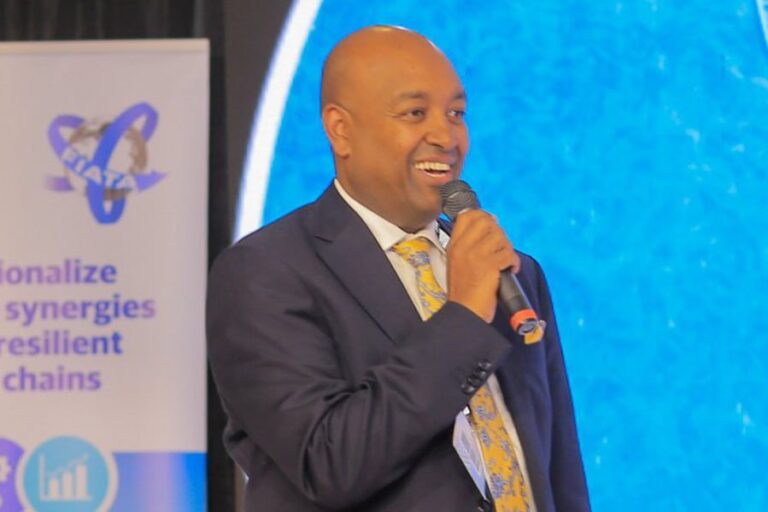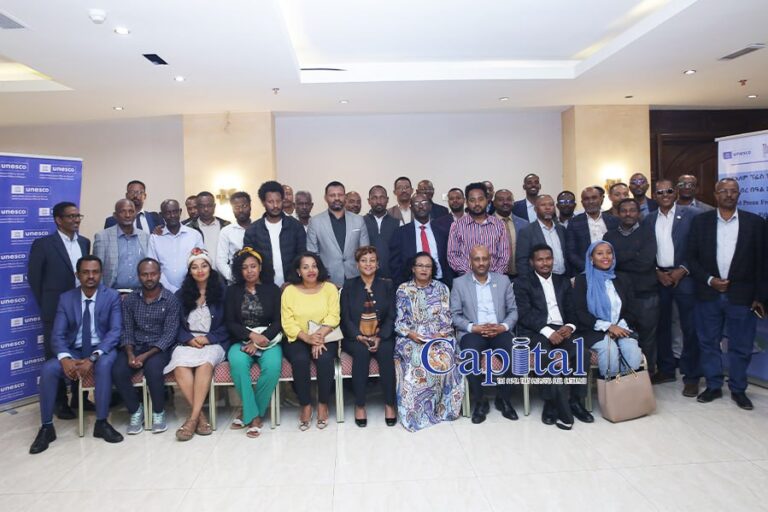The Global Energy Alliance for People and Planet (GEAPP) and its alliance partners hosted the inaugural Climate Africa Warsha on World Press Freedom Day. The “Warsha” which means ‘workshop’ in Swahili creates a platform where journalists can connect with key renewable energy stakeholders, equipping them with the insights and skills required to elevate their reporting on the climate crisis, and energy access and transition solutions.
Africa faces profound impacts from climate change, but this story remains underrepresented in the media. Limited climate desks and a shortage of trained climate journalists result in inadequate coverage, leaving the public less informed about crucial climate issues and solutions. The inaugural warsha attracted nearly 100 participants from over 20 countries who commended the programme’s focus on practical skills development and its emphasis on building a collaborative network in the climate and energy space. Recognising the importance of continuous learning and engagement, the Climate Africa Warsha will be conducted at least twice annually, ensuring sustained momentum and keeping the journalist community updated with the latest developments and best practices in climate reporting.
The State of the Climate in Africa 2022 report shows that the rate of temperature increase in Africa has accelerated in recent decades, with weather- and climate-related hazards becoming more severe. And yet financing for energy access and transition as well as climate adaptation is focused in high-income countries. Developing economies receive only 13% of green energy financing and 6% of all solar PV and wind energy infrastructure deployed globally in 2021 went to the world’s 81 energy poor countries. Hundreds of millions of people still lack access to affordable, reliable electricity, which is critical to resilience in the face of climate change.
According to The State of the Climate in Africa 2022 report, more than 110 million people on the continent were directly affected by weather, climate and water-related hazards in 2022, causing more than US$ 8.5 billion in economic damages. There were a reported 5 000 fatalities, of which 48% were associated with drought and 43% were associated with flooding, according to the Emergency Event Database. Yet this critical narrative often remains underrepresented in the media. Limited climate desks and a shortage of trained climate journalists result in inadequate coverage, leaving the public less informed about crucial climate issues and solutions.
According to a September 2023 Report by Internews, the biggest obstacles to effective climate change reporting in East Africa include insufficient coverage, generic stories with a global perspective rather than local focus, a lack of access to climate experts and a lack of training and specialisation in climate and environment reporting amongst journalists and newsrooms.
97% of respondents were interested in training on identifying and reporting climate misinformation. The most curious finding, however, suggests that two-thirds of the journalists surveyed in East Africa feel the need to include climate change sceptics or deniers to provide “balance” in their reporting, which can lead to the amplification of false or misleading information.
The inaugural event aligned with the theme for this year’s World Press Freedom Day theme “A Press for the Planet: Journalism in the Face of the Environmental Crisis,” and featured expert insights from former Vice-President of Nigeria and GEAPP Global Advisor H.E. Prof Yemi Osinbajo and Adenike Oladosu, a prominent climate justice activist among others. The event also featured practical skills sessions, and valuable networking opportunities. Participants also engaged in discussions on crucial topics like Africa’s role in achieving global renewable energy and energy efficiency targets, including the COP 28 target to triple the world’s installed renewable energy generation capacity to at least 11,000 GW by 2030, given its abundant renewable energy resources, such as solar, wind, hydro, biomass, and geothermal, that can meet its current and future energy demand.
According to Africa Energy Outlook 2022, achieving Africa’s energy and climate goals means more than doubling energy investment this decade. This would take it over USD 190 billion each year from 2026 to 2030, with two-thirds going to clean energy. The share of energy investment in Africa’s GDP rises to 6.1% in the 2026-30 period, slightly above the average for emerging markets and developing economies. But Africa’s energy investment in that period is still only around 5% of the global total in the IEA’s Net Zero Emissions by 2050 Scenario.
“GEAPP was created to address the defining twin challenges of our time—ending energy poverty and tackling the climate crisis through a just transition to renewable energy in emerging markets. We believe the media has a critical role to play in shaping public discourse on climate change and informing decision-making and policy formulation in Africa’s energy transition journey. The Climate Africa Warsha is a crucial platform for exchange between the media and other industry stakeholders, empowering journalists to effectively report on these critical issues and ultimately contributing to a more sustainable future for Africa,” said H.E. Professor Yemi Osinbajo, former Vice-President of Nigeria and Global Advisor to GEAPP.
“As journalists and communications specialists, we need to appreciate the real issues. We are not just the monitors but also the catalysts of change”, added H.E. Prof. Osinbajo.
John Allan Namu, a Kenyan award-winning investigative journalist and CEO of Africa Uncensored underscored the media’s role in creating awareness on the climate financing pledges. “Journalists need to report on why the pledges haven’t worked in the past. When nations walk out of discussions and walk away from pledges, the impact is felt. It’s not all about mentioning signatories but talking about the impact of this at a granular, community and national level”, said Namu.
Participants commended the programme’s focus on practical skills development and its emphasis on building a collaborative network in the climate and energy space. According to a survey conducted at the end of the event, 62% of respondents indicated that the topic was of high relevance. On the suitability of the panel discussion format, 90% of respondents found the format suitable for discussing complex topics related to renewable energy and climate change in Africa, while 10% were neutral, indicating room for improvement but not dissatisfaction.
“The Climate Africa Warsha provided invaluable insights and sharpened my skills in reporting on complex climate issues,” said Mark Misori, a journalist from Scholar Media Africa. “I am confident that this programme will empower journalists like myself to play a more significant role in Africa’s climate narrative.”
Phoebe Sullivan, Energy Officer at Power Africa, expressed her enthusiasm for the initiative, saying, “At Power Africa, we recognize the pivotal role of the media in shaping public opinion and policy towards sustainable energy solutions. The Climate Africa Warsha provides a valuable platform for journalists to deepen their understanding of renewable energy and climate change, ultimately driving progress towards a greener future.”
Ultimately, a well-informed media sector acting as a champion for sustainable practices and renewable energy adoption is expected to give the climate action movement a significant boost.
Adenike Oladosu, a prominent climate justice activist, emphasized the importance of media engagement in the fight against climate change, stating, “Climate journalists and the Civil society play complementary roles in raising awareness, driving change, and shaping public discourse on climate change and the transition to clean energy. By empowering the two groups with the tools and knowledge needed to cover environmental issues effectively, we can inspire action and mobilise communities towards sustainable solutions.”











